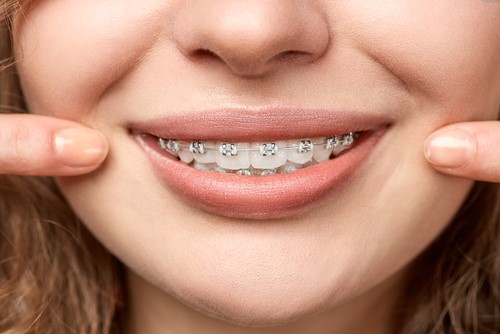Tooth extraction is sometimes necessary as part of orthodontic treatment, particularly when braces are used to correct misaligned teeth. This process involves removing one or more teeth to create space or to address specific dental issues that can hinder the effectiveness of orthodontic treatment. Here’s a comprehensive guide to understanding the process, reasons for extraction, and the benefits braces tooth extraction it can offer:
Reasons for Tooth Extraction with Braces
- Crowding: One of the most common reasons for tooth extraction is dental crowding. When there isn’t enough space in the mouth for all teeth to align properly, extraction can create room for the remaining teeth to move into better alignment.
- Overbite or Protrusion: Teeth that protrude outward or an overbite may require extraction to allow other teeth to move into a more desirable position.
- Impacted Teeth: Sometimes teeth may become impacted, meaning they are trapped beneath the gum line or unable to emerge properly. Extracting impacted teeth can prevent complications and allow other teeth to align correctly.
- Structural Issues: Structural problems with teeth, such as severely malformed or malformed teeth, may also necessitate extraction to facilitate proper alignment with braces.
The Process of Tooth Extraction
Pre-Extraction Planning
Before extraction, your orthodontist will conduct a thorough examination, which typically includes X-rays to assess the position and health of the teeth. This assessment helps determine which teeth, if any, need to be extracted and how the extraction will affect your overall treatment plan.
Extraction Procedure
- Anesthesia: Local anesthesia is usually administered to numb the area around the tooth to be extracted. For more complex extractions or multiple teeth, general anesthesia may be recommended.
- Extraction: Using specialized instruments, the dentist or oral surgeon carefully removes the tooth from its socket. In cases of impacted teeth, a small incision may be necessary to access the tooth.
- Post-Extraction Care: After the extraction, your dentist will provide instructions on how to care for the extraction site, including managing any discomfort or swelling. It’s essential to follow these instructions carefully to promote proper healing.
Benefits of Tooth Extraction for Braces
- Improved Alignment: By creating space, tooth extraction allows the remaining teeth to move into their correct positions more effectively with braces.
- Facial Profile Enhancement: In cases where protruding teeth are extracted, braces can help improve the overall facial profile by bringing the teeth into a more harmonious position.
- Reduced Treatment Time: Addressing severe crowding or structural issues early with tooth extraction can often shorten the overall duration of orthodontic treatment.
- Enhanced Oral Health: Correcting alignment issues through extraction and orthodontic treatment can lead to better oral hygiene, reduced risk of gum disease, and improved overall dental health.
After Extraction: Integration with Braces
Once the extraction site has healed sufficiently, usually within a few weeks, braces are then placed to begin the alignment process. Your orthodontist will customize a treatment plan, which may involve regular adjustments to the braces and monitoring of your progress to ensure optimal results.
Conclusion
Tooth extraction as part of orthodontic treatment requires careful planning and consideration of the individual’s dental health needs. It’s essential to work closely with your orthodontist to understand why extraction is recommended, what the procedure involves, and how it will contribute to achieving a healthy, well-aligned smile. By following post-extraction care instructions and attending regular orthodontic appointments, you can ensure a successful treatment outcome and enjoy the benefits of improved dental aesthetics and functionality

